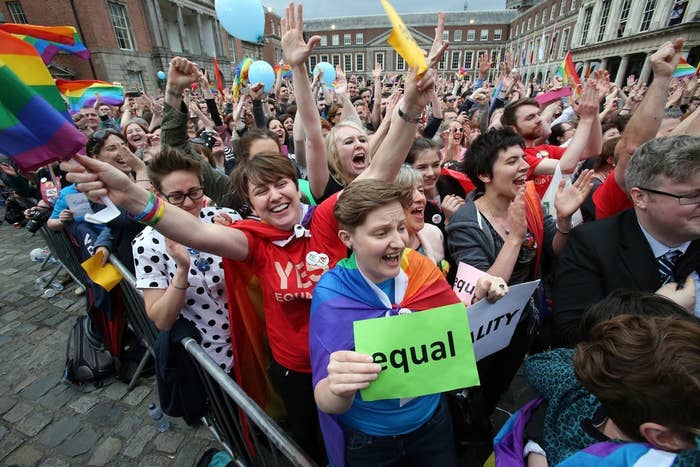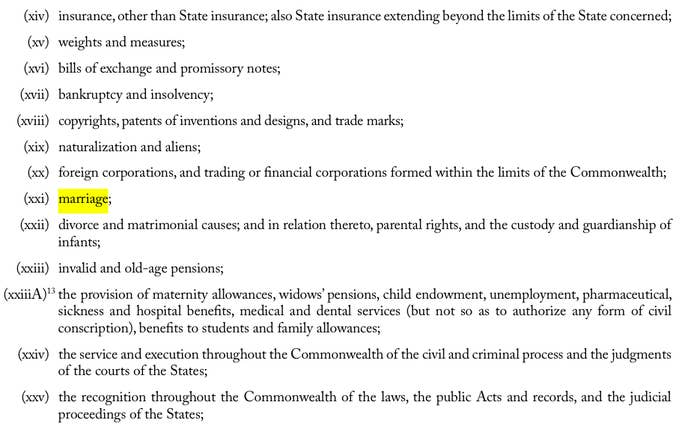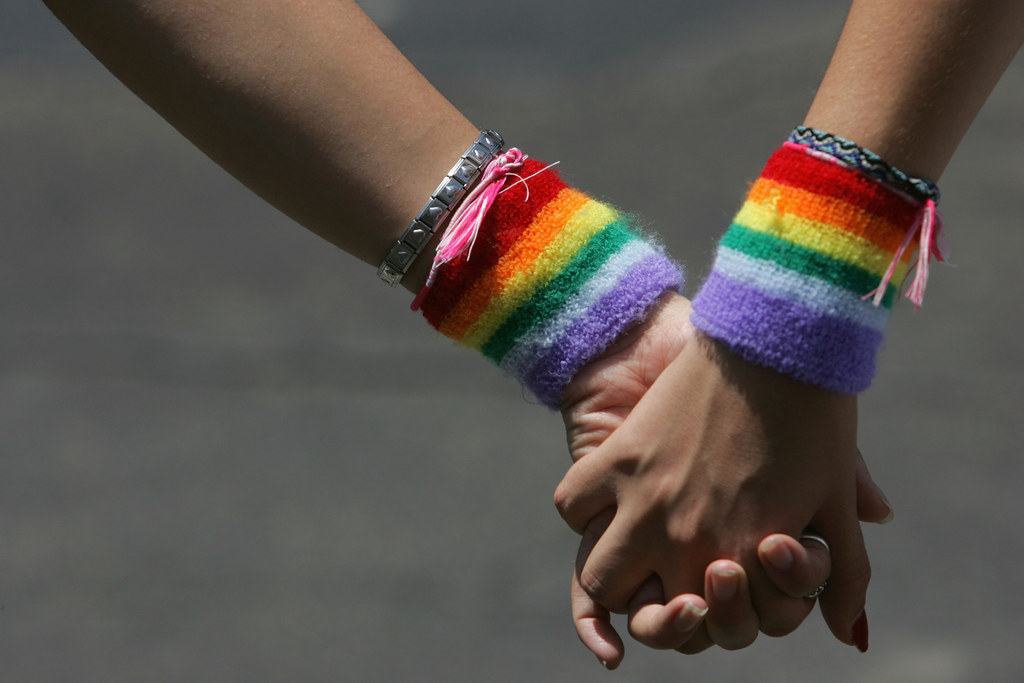In the wake of Ireland's successful vote for marriage equality, some Australian politicians and people have been calling for a referendum on the issue here.

1. A referendum isn't necessary because the definition of marriage as between a man and a woman is not in the Australian constitution.

2. In fact, the High Court has explicitly stated there are no constitutional barriers to legalising marriage equality in Australia.
It's a 2004 amendment to the Marriage Act 1961 that is banning marriage equality – and the federal parliament has the power to amend it.
3. We could technically have a referendum anyway, but the constitution is a weird place to instill social values.
Part of the problem in Ireland is that its constitution entrenched social values in the first place, law professor George Williams recently wrote in the Sydney Morning Herald.
"Ireland shows the danger of entrenching social values in a nation's constitution. What may seem unobjectionable at one point in time can prevent reform 50 years or even a century down the track," he wrote.
"It is better to leave these matters to parliamentarians to resolve so that concepts like marriage can evolve over time."
Plus, parliament has to pass a bill to have a referendum – and if MPs won't vote to change legislation on marriage equality, it's unlikely they'd approve an opportunity to have it enshrined in the constitution.
4. We could have an "advisory referendum" – better known as a plebiscite – but this is also a bad idea.
A plebiscite tests whether or not the public is in favour of a certain reform. It's not legally binding, so the government would be free to accept or ignore the result.
Considering that independent polling agencies have already shown a clear majority of Australians support marriage equality, a plebiscite would merely reflect this public sentiment, yet not have any legal power to compel politicians to act.
5. Referendums are really expensive.
In 1999, a referendum was held on whether Australia should become a republic. It cost $66,820,894.
According to the Australian Bureau of Statistics inflation calculator, that figure would translate to just over $100,000,000 today. Yep.
6. They are also doomed to fail.
Australians have rejected the vast majority of referendums put to them over the years, approving only 8 of the 44 held since 1906.
Referendums require a "double majority", defined by the Australian Electoral Commission as:
1. A national majority of voters in the states and territories, and;
2. A majority of voters in a majority of the states (at least four out of six states).
The double majority makes it far more difficult for constitutional reform to occur than for an ordinary vote in the parliament to pass. It also means that if certain areas do not support marriage equality, then it could fail – even if an overwhelming majority of the nation votes yes.
The yes/no simplification of a referendum, along with the need for education and awareness campaigns on the referendum topic, have also been posited as reasons for the referendum fail rate.
7. If a referendum did happen, the "No" campaign would likely invoke negative stereotypes of LGBT people that would be harmful to an already disadvantaged community.

8. Parliament almost has the numbers, anyway.
According to AME, support for marriage equality in the federal parliament is on a knife edge, just three votes short of the legislation passing the House of Representatives. However, a successful vote is contingent on Tony Abbott granting a conscience vote to the Liberal Party, allowing MPs to vote on the issue however they see fit.
"A referendum would be costly, polarising and unnecessary given the High Court has already removed all constitutional obstacles to reform," said Rodney Croome, national director of AME.
"Given how close the numbers are in our parliament, any suggestion of a referendum is at best a diversion and at worst a delaying tactic."
"The major obstacle to marriage equality is that government members are not allowed a free vote on the issue."
